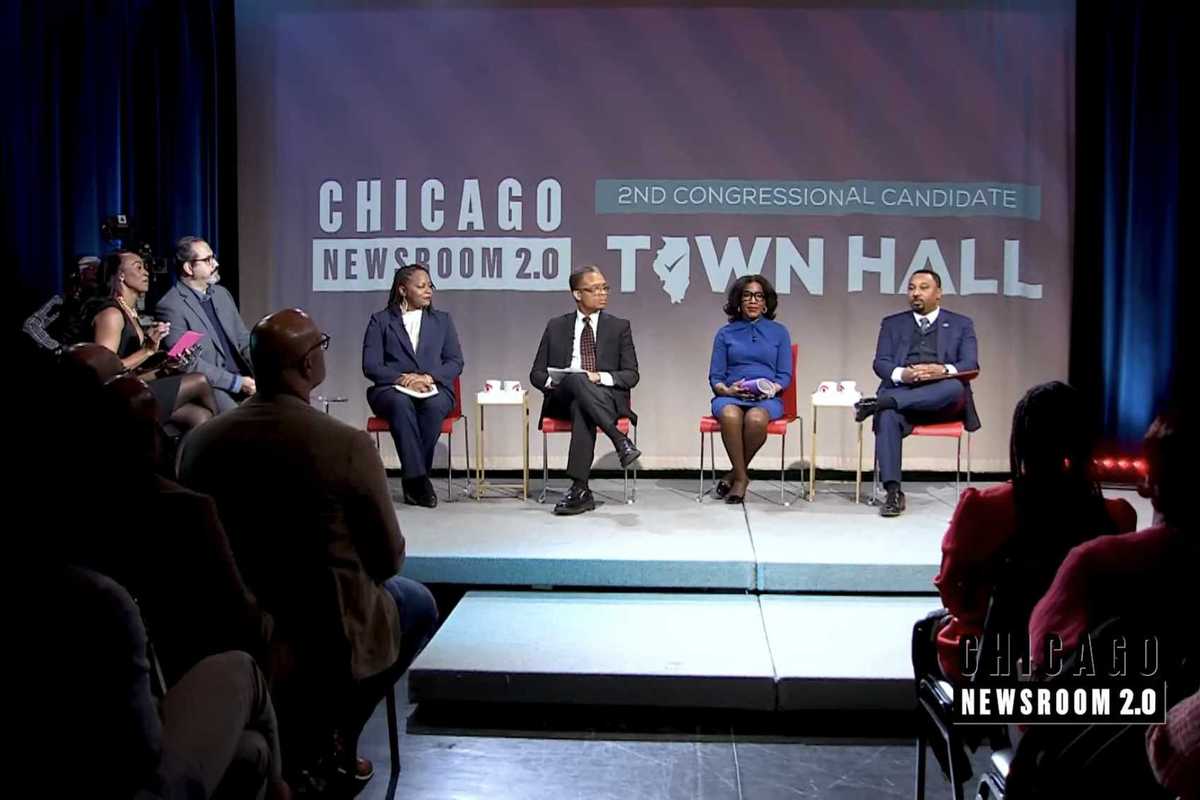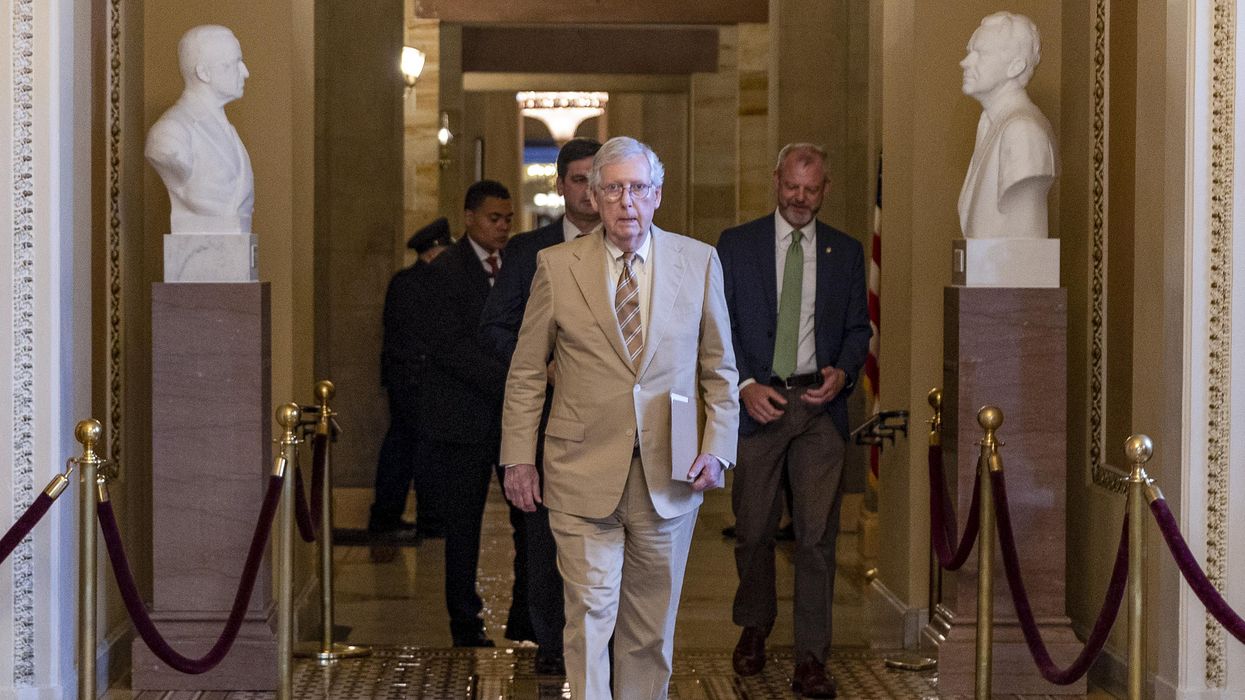Garson is legal counsel and chief of staff for the Bridge Alliance, which houses The Fulcrum.
I’m a proud American progressive, which is why it alarms me to see leaders of the progressive movement relentlessly pushing to reform or abolish the Senate’s legislative filibuster.
For those who don’t know, in order to pass a bill in the Senate, you must first end debate on the measure. If somebody objects to ending debate, it’s called a filibuster, and 60 senators must vote to end debate in order for the bill to proceed. Filibuster reform would change this rule and make it possible to pass legislation with less than 60 votes.
I oppose filibuster reform because I believe it would severely backfire for American progressivism, as it already has with the Supreme Court.
Unfortunately, progressives who share my concerns are told to sit down, or are treated as traitors to the movement. That’s because the movement has become hostile to well-intentioned disagreement – a mindset that has existed for a while and was amplified with the election of Donald Trump.
Trump becoming president threw many people – myself included – into a existential political crisis, which reached a crescendo four years later when he refused to accept the results of the 2020 election. Since then, progressives have been on high alert.
That alertness has created a flight-or-fight, us-vs.-them mentality, and as my father Jeff Garson once put it, “Fight or flight is specifically designed to neutralize or ‘annihilate’ the will of the other.” This makes it hard to stray from your political “tribe.” If you do, there’s a good chance you will be rejected by your traditional allies. The end result is a progressive echo chamber that has outlived the Trump presidency.
That echo chamber has identified the legislative filibuster as an obstacle to necessary reform. The solution, progressive leaders insist, is to either eliminate the filibuster or, at the very least, reform it. Specifically, change the rules so that bills involving fundamental rights (like voting, health care, etc.) aren’t subject to the filibuster.
On its face, the hostility toward the filibuster and the push to change it make sense. The filibuster has become a defining feature of the Senate’s frustratingly cumbersome legislative process, as it gives a minority of Senators the power to stop a vote on a bill. Moreover, unlike in the famous film “ Mr. Smith Goes to Washington ” (or the real life example of Wendy Davis in Texas), these senators don't need to do anything but vote against ending debate. There are no prolonged speeches or showings of commitment via endurance.
But, as with many “solutions” that come from echo chambers, I believe the sort of filibuster reform being advocated today would be dangerously short-sighted. While carving out exceptions to the filibuster might allow Democrats to pass certain reforms this year, I believe it would open the door for an aggressively conservative agenda – one that would make Ronald Reagan blush – when the tables turn and Republicans control the Senate.
That fear is not a fantasy – indeed, we already saw it happen with the Supreme Court.
Back in 2013, Senate Democrats carved out exceptions to the nominations filibuster for all but Supreme Court nominees (President Barack Obama had already had his two nominees confirmed to the top court). This cleared the path for a number of Obama’s nominees, both in the courts and in his own administration. The very next year, that path was blocked again after Republicans took back control of the Senate.
Two and a half years later, Trump nominated Neil Gorsuch to the Supreme Court. Democrats tried to filibuster his nomination as retaliation for Sen. Mitch McConnell, the chamber’s top Republican, denying Merrick Garland a vote. Republicans responded by eliminating the last scrap of the nominations filibuster, thereby allowing Gorsuch, and the far more controversial Brett Kavanaugh and Amy Coney Barrett, to be confirmed by the barest of majorities. Yes, Garland should have been confirmed to fill the late Antonin Scalia’s seat, but the end result of the 2013 “carve out” is a conservative supermajority for the foreseeable future, and the demise of Roe v. Wade and perhaps other formerly protected rights.
I believe that carving out exceptions to the legislative filibuster would lead to a similar result. While the existence of the filibuster makes passing new laws very difficult, the flipside is that it also makes undoing laws and programs (like the Affordable Care Act) very difficult. And, as mentioned, it serves as a barrier against a conservative agenda.
These arguments and comparisons are nothing new (Pete Weichlein of the Former Members of Congress Association previously discussed some of them), but pro-filibuster perspectives are almost absent in the progressive bubble. A short time ago, I searched The Factual for the word “filibuster” and found that left-leaning opinions ranged from relative neutrality to hardened vitriol. I didn’t find any defenses of the filibuster.
Sure, without the filibuster Democrats might be able to pass climate change and voting rights legislation this year, but Republicans are well-positioned to take back the Senate and House in November. Additionally, it’s unclear who will be favored in the presidential election in 2024. If Republicans win back the White House, Democrats will have cleared the way for Republicans to both undo the immediate, post-filibuster laws and implement at the federal level all of the state-level policies that have the progressive movement concerned (think voting restrictions, reduced Medicaid spending, more anti-abortion laws, etc.).
Is this guaranteed to happen? No. But we know from history that there is a substantial risk, and the progressive movement doesn’t seem to be acknowledging that risk. That’s what happens when dissent is shut down before it has a chance to make its case.
And that’s all I’m asking for – robust debate. Before we fundamentally alter lawmaking in America, let’s have a discussion about what’s at stake and the costs and benefits of different courses of action. We need space for well-intentioned progressives to feel comfortable voicing concerns and disagreements with the rest of the movement.
Right now, I don’t think that’s possible and I’m afraid that the rewards will be reaped by the very people who view progressivism as the enemy.



















